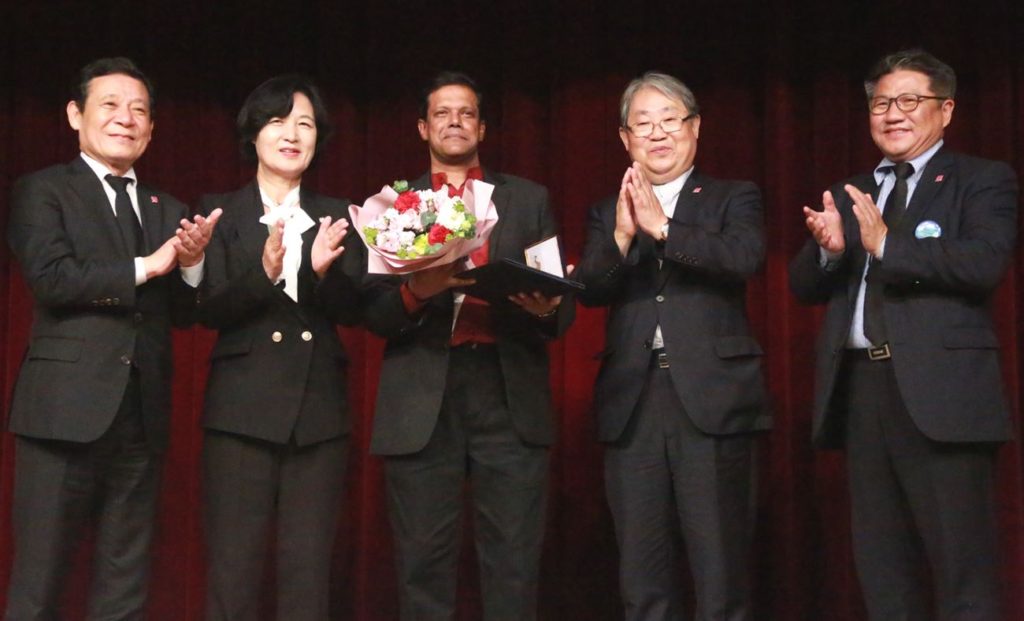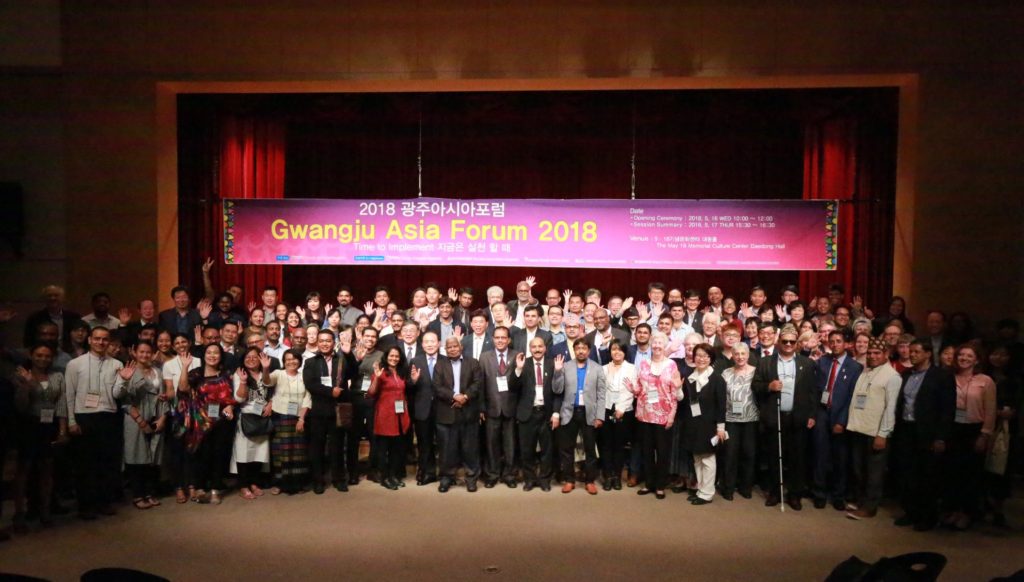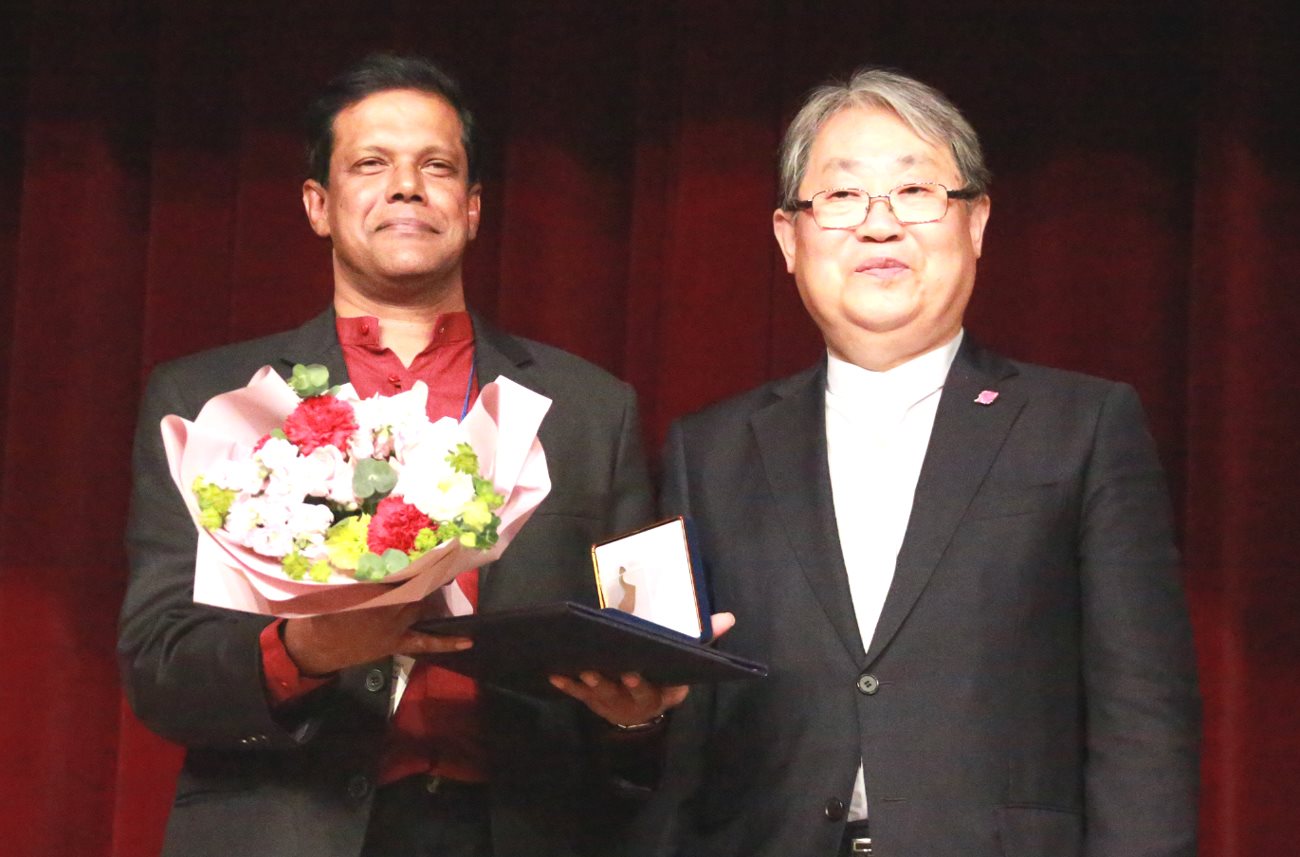The 2018 Gwangju Asia Forum
Written by Zico Mulia
Photographs courtesy of May 18 Memorial Foundation
The 2018 Gwangju Asia Forum and the 2018 Gwangju Prize for Human Rights Award Ceremony were held on May16–17 at the May 18 Memorial Culture Center. The annual forum to commemorate the May 18 Democratic Uprising and the Asian Human Rights Charter (People’s Charter) declaration was attended by more than 150 people’s, among whom were human rights activists, trade unionists, a member of parliament, scholars, youth, and guests from 22 countries across Asia, Europe, and North America. This year is the 20thAnniversary of the Asian Human Rights Charter’s promulgation. In May 1998, the May 18 Memorial Foundation and the Asian Human Rights Commission (AHRC), together with representatives from the attending countries, announced the charter’s promotion in Gwangju.

The chairperson of the May 18 Memorial Foundation, Lee Cheol-woo, in the opening speech said that “The Asian Human Rights Charter originated from the necessity of a practical mechanism that could ensure the acceptance of the universality of the Universal Declaration of Human Rights and could also ensure people’s rights in Asia.” He added that, after 20 years of promotion, many states have responded to the ceaseless struggles for the advancement of human rights for Asian people with eye-opening progress. The Director Policy & Programs at the AHRC, Basil Fernando, in his keynote address conveyed, “Today, we have gathered to discuss three documents: declarations on the right to justice, the right to peace, and the right to culture and cultural identity.” All three of these documents are interlinked and therefore carry a common theme. Basil added that the reason we choose to reinforce the right to justice is because without such a right, the rights to peace, culture, and cultural identity cannot not be achieved. In addition to speeches given by representatives from both organizations, there were also speeches made by special guests including Martha Huntley (wife of the late Rev. Charles Betts Huntley), Mrs. Barbara Peterson (wife of the late Rev. Arnold Peterson), Mr. Lee Jong-hyeon (consultant for the Koreans in Europe Solidarity); Prof. Yun Woo-seop, and Mr. Seol Gap-su.
During the two days of the 2018 Gwangju Asia Forum, with the theme of “Time to Implement,” the AHRC held a separate discussion on the Asian Declaration on the rights to justice, culture, and peace that reflected the situation in several Asian countries. In addition to the above sessions, there were several discussion forums with other important themes such as the International Conference on Trauma from State Violence(organized by the Gwangju Trauma Center); the Youth Leadership Forum for Democracy (organized by the Asia Democracy Network); the Grassroots Organizations Support Workshop (co-organized by the May 18 Memorial Foundation and the Gwangju Human Rights and Peace Foundation); the May 18 Education Forum (co-organized by the May 18 Memorial Foundation and the Gwangju Metropolitan Office of Education); the East Asia Democracy, Human Rights, and Peace Networks meeting (organized by the May 18 Memorial Foundation); and a session on May 18 and Journalism (co-hosted by the May 18 Memorial Foundation, the Association of Discharged Journalists–1980, and the May 18 Institute of Chonnam National University). Each forum produced important perspectives for the participants, and summaries of the various sessions were delivered at the end of the forum’s second day.

The 2018 Gwangju Prize for Human Rights Award Ceremony
On May 18, after participants visited the May 18 National Cemetery in the morning and watched A Taxi Driver, a movie based on actual events that took place during the May 18 (1980) Democratic Uprising, the Gwangju Prize for Human Rights (GPHR) award ceremony was held. The prize was established in 2000 in an effort to promote the spirit of the May 18 Democratic Uprising. Selected individuals or organizations are from around the world and have made significant contributions to the advancement of human rights, unity, solidarity, and world peace.
This year, the GPHR selection committee selected Nandana Manatunga, a Catholic father and representative of the Human Rights Office in Sri Lanka. Fr. Manatunga has worked to help victims of state violence who have suffered under the dictatorship of that country. The committee acknowledged that his activities fit the purposes of the prize. The award ceremony started with a short speech and words of appreciation from the chairperson of The May 18 Memorial Foundation and the mayor of Gwangju, Yun Jang-hyeon. The ceremony then proceeded with the award ceremony by the chairperson of The May 18 Memorial Foundation and ended with an acceptance speech from Fr. Manatunga.
The Author
Zico is a master’s degree program student at Chonnam National University, majoring in interdisciplinary NGO studies. Hailing from Indonesia, he is also active as a human rights defender and pro-democracy activist. Zico likes to read, listen to music, sports, and traveling.




